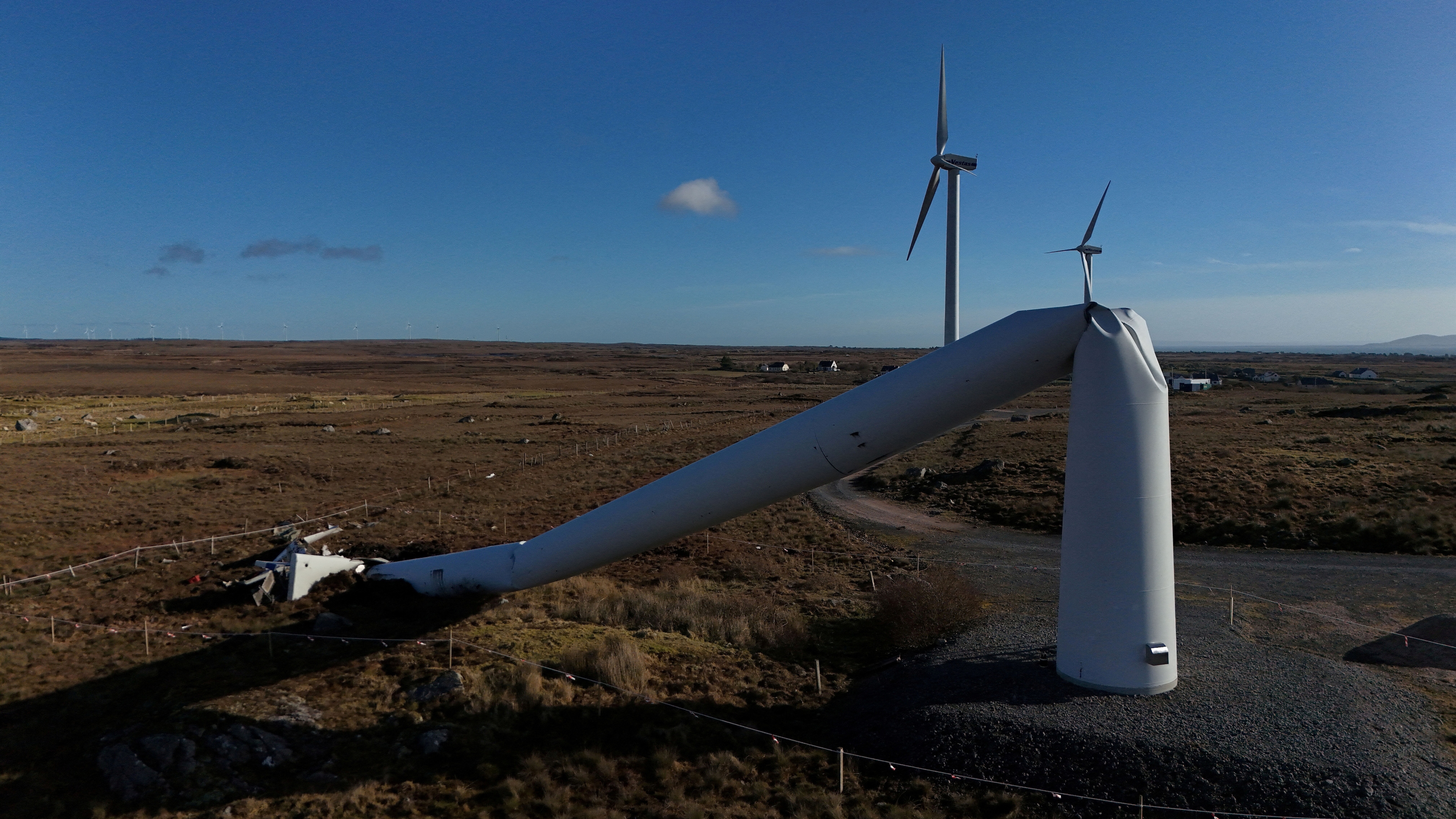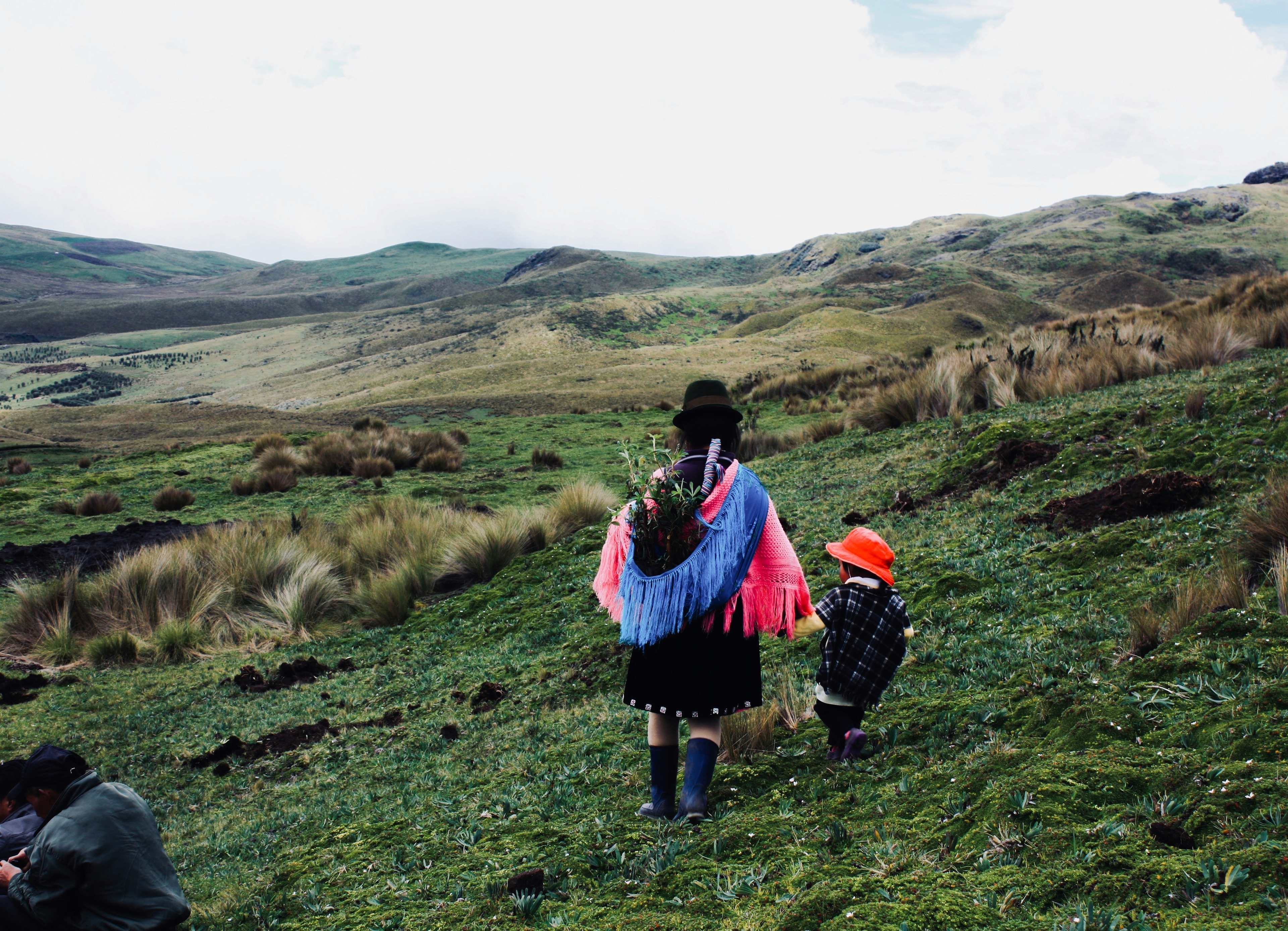Investing in nature gives industry and business a competitive advantage. Here's why

The next business frontier lies at the intersection of climate change and biodiversity.
Image: Photo by Vincent van Zalinge on Unsplash
Stay up to date:
Future of the Environment
- On the agenda at the IUCN Congress in Marseille is awareness that investment in a vibrant natural world opens the door to sustainable and sustained prosperity.
- Forward-thinking business leaders understand that nature and economics are inextricably linked.
- Industry leaders need to change the measures of growth, bring the true value of nature into market pricing and ensure demands on nature do not exceed the ability to supply.
The world is in danger of losing 10% or more of its total GDP by the end of the century. This is the top takeaway from a recent stress-test study by Swiss Re that looks at the consequences of failing to address climate and environmental risks.
To put that into perspective using the most recent economic and human tragedy, the COVID-19 pandemic trimmed a full 6% of global GDP in 2020. This is widely seen as an economic catastrophe. So what are countries and companies doing to safeguard against an even more precipitous decline in wealth?
This question comes at a moment when environmental impacts are growing too severe and costly to ignore. With the arctic circle sweltering at 48°C, species in decline globally and shareholders demanding new approaches, this is an opportune moment to launch the green recovery and pave the way towards sustainable development and lasting prosperity.
Yet, even with profit in the green recovery, we are not on track to seize this transformative moment. For private-sector leaders, questions remain. Many know that action is needed, but beyond obvious action like energy efficiency and clean energy, potential solutions and their value are less obvious.
Beyond obvious action like energy efficiency and clean energy, potential solutions and their value are less obvious.
”Potential solutions will be in focus at upcoming meetings of governments and development stakeholders. At events like the IUCN World Conservation Congress in Marseille this week, we hear a clarion call to protect nature. Protecting nature contributes to the stable environment that is a foundation for growth. For companies and countries looking to gain a competitive edge, investing in biodiversity preserves stability and provides a significant competitive advantage.
Biodiversity is emerging as an area of interest for firms looking for that first-mover advantage. Why biodiversity? Simply put, healthy ecosystems are needed for healthy growth. As much as we need a stable climate, we must protect oceans and forests and the life that fills these habitats.
This may sound more like a science project or protest march than a business strategy, but forward-thinking business leaders understand that nature and economics are inextricably linked. The recent State of Finance for Nature report found that half of global GDP depends on healthy ecosystems rich with biodiversity.
Pollinators like bees and hummingbirds enable agricultural production. Drugmakers look to nature to innovate new medicines. Tourists flock to natural parks and beautiful beaches. Fishermen feed billions per day from the world’s oceans. Clearly, our business models rely on the natural world.

The next business frontier lies at the intersection of climate change and biodiversity, and those accounting for nature as a whole will know how to manage risk, meet demand and scale up as the world transforms.
Visionary leaders have sound business reasons to protect, sustainably manage and restore ecosystems to deliver sustained and sustainable growth. In 2021, momentum is building in support of innovative business models and solutions in harmony with the natural world.
The recent G7 meeting saw agreement of the 2030 Nature Compact, with of the world’s largest economies working to conserve or protect at least 30% of global land and at least 30% of the global ocean by 2030. Along with strong statements from the IUCN World Conservation Congress in Marseille, the UN Convention on Biological Diversity (CBD) COP15 in Kunming and the UN Climate Change COP26 in Glasgow, corporations have certainty to align with the long-term plans that come from these meetings. They also have more reasons than ever to do so.
The February Dasgupta Review on the Economics of Biodiversity outlines the need for fundamental change in how we approach nature. If you look at natural resources as assets, humanity has failed to manage our portfolio well.
Have you read?
We must change the measures of growth, bring the true value of nature into market pricing and ensure demands on nature do not exceed the ability to supply. A recent INSEAD-supported study by ChangeNOW and The Boston Consulting Group shows both a lack of interest by companies and a great need to take simple steps to consider nature in business.
This represents a fundamental change to our extractive, GDP-driven global economy. It is a change welcomed by more and more consumers and citizens as people wake up to the fact that GDP is a poor measure of wellbeing. Externalities not accounted for in GDP can have real costs in terms of carbon pollution and biodiversity loss.
The recent trend of citizen eco-awakening around the world is unsurprising now that extreme heat, storms and drought affect billions each year. And it is welcome that this trend is seen in developed and emerging economies alike.
The world is looking for change, with younger generations willing to pay for it. A full 75% of US Millennials and 63% of Gen Z are willing to pay more for sustainable products. These groups are increasingly aware of their power of consumer choice, and they demand responsible products that are good for the planet.
Governments are listening and need a strong signal to move forward at COP15 and COP26 with confidence. Business can truly make a difference as a force for good when they give government this confidence and align business models with policy goals.
Forward thinking industry leaders are examining how their business models interact with nature and they are looking beyond the next quarter. This is an ideal moment for every company to examine their operations, see where nature interacts with their supply chains and fortify the foundation for sustainable development. This is a moment to invest in nature.
Don't miss any update on this topic
Create a free account and access your personalized content collection with our latest publications and analyses.
License and Republishing
World Economic Forum articles may be republished in accordance with the Creative Commons Attribution-NonCommercial-NoDerivatives 4.0 International Public License, and in accordance with our Terms of Use.
The views expressed in this article are those of the author alone and not the World Economic Forum.
Forum Stories newsletter
Bringing you weekly curated insights and analysis on the global issues that matter.
More on Sustainable DevelopmentSee all
Murchana Roychoudhury and Saurabh Shah
August 12, 2025
Elizabeth Henderson and Daniel Murphy
August 8, 2025
De Rui Wong and Keebum Kim
August 7, 2025
António Costa
August 6, 2025
Mauricio Zuazua and Francisco Betti
August 4, 2025
Anurit Kanti
August 4, 2025





